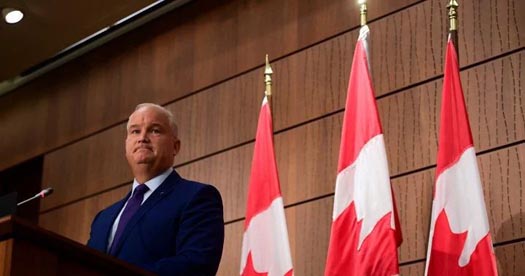
In his column in the August 30th edition of The Georgia Straight online, Now Magazine political editor Enzo DiMatteo asks the question, “Has Erin O’Toole got Canadians hoodwinked? — as witness today’s headline above.
The sub-headline for DiMatteo’s story asks if Canadian voters aren’t being “seduced” by a more palatable, re-packaged version of Conservative Party leader Erin O’Toole, reminding readers of last weekend’s violent anti-vaxx mob rallies in Bolton and Cambridge, Ontario, where Conservative party supporters and campaign workers — the base of the Tory party? — provided insight into the hate spewing values that represent the core beliefs of, perhaps, a significant contingent of Conservative party members, and what an intolerant 2021 anti-democratic Tory party really stands for.
“Mostly by flying under the radar and keeping the seamier anti-vaxxers, anti-maskers and conspiracy theorists in his base (not to mention his caucus) quiet … the party is spending lots of cash on social media polishing O’Toole’s everyman image with photo opportunities of the Conservative leader playing with Fido and feeding llamas (or were they alpacas?). It’s quite a stretch from the photoshopped images of O’Toole the party had been sharing on Twitter to make him look more buff.
QAnon. Yellow Vesters. Flat earthers. They’re all part of the Con base (and growing) since Stephen Harper began stoking populist and Western separatist sentiment (not to mention Islamophobia) in the party more than a decade ago.
As Conservative poll numbers rise, many voters seem to have forgotten about the Trumpeteers that occupy the lower rungs of the party. Make no mistake. They’re the same folks who voted for “True Blue” O’Toole during the party leadership. Remember him? The campaign team behind O’Toole then are the same ones responsible for the homophobia-tinged crusade in the 2018 Ontario election against Kathleen Wynne.
While O’Toole has tried to present himself as a moderate conservative out for the little guy, it’s not the version of conservatism that the party he oversees actually stands for. There’s no progressive in this conservatism. Truth is, many don’t believe in climate change. They don’t believe in (or see) the need for mandatory vaccinations during a public health crisis. They don’t believe in gun control. They don’t really believe in LGBTQ rights. They don’t believe in a woman’s right to choose. Many of them don’t even believe the pandemic is real.
On Sunday, August 29th Georgia Straight editor Charlie Smith, asked what turned out to be a provocative question, “Do you know the most popular white supremacist slogan in the world?” The answer: “Here it is: “We must secure the existence of our people and a future for white children.”
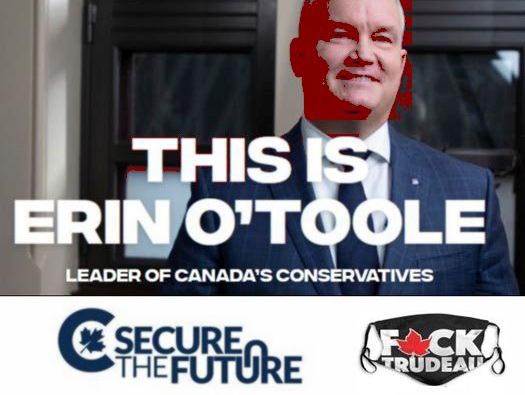
Charlie Smith goes on to write that he was curious to know if the Conservative Party’s campaign slogan, “Secure the Future”, had ever been used in other political campaigns. Turns out it has. Surprise, surprise. White nationalists just love the Klan notion of “securing the future” for whites.
Enzo DiMatteo pointed out in a column published earlier this year …
“O’Toole has adopted the Trumpian language of the far-right, railing against ‘cancel culture,’ fuelling suggestions that the Liberal government’s pandemic response is part of a socialist ‘Great Reset’ and pulling out the dog whistle on China and the coronavirus every chance he gets.”
In his article, Mr. Smith references a Georgia Straight column written by academic and community activist, Stuart Parker, who is curious as to why Erin O’Toole on August 19th introduced the legalization of amyl nitrate and other “poppers” as an issue of importance in the Canadian election.
“Poppers,” Parker writes, “became known as a gay party drug in the 80s and until the past decade were primarily associated with the gay club scene and online casual sex through applications like Grindr.” Asks Parker, “Why would O’Toole get his health critic Michelle Rempel to raise the legalization of poppers in correspondence with the Minister of Health and follow up with a headline-grabbing poppers legalization announcement?”
Parker believes that Erin O’Toole is making his first intentional, programmatic, planned play for what is known in Trump world as “The Porno Right” — the Incel crowd comprised of typically single or otherwise sexually unfulfilled males whose online world focuses on hate for gender-feminists, who consume an abundance of misogynistic porn (including anal rape) on 4Chan, 8Chan, Pornhub, and XHamster, their hate fuelled by mass consumption of amyl nitrate and an assortment of other “poppers”.

Parker ends his article in the August 20th edition of The Straight, writing …
“But let us recognize that O’Toole’s announcement has very little to do with the health of gay men or even that of career masturbators. But it has everything to do with the Porno Right coming of age as a political constituency that, like its adversaries in the Christian Right, must mostly be courted through coded communication and dog-whistles, dog-whistles that arrived in Canadian politics in Ottawa with the announcement of the legalization of the drug of choice for the Incel Porno Right constituency within the Conservative Party of Canada.”
As we have written previously, Erin O’Toole’s Reform/Alliance Conservative Party hues closer in its leanings to the belief system espoused by QAnon conspiracy theorists, as they gain more influence with each passing day.
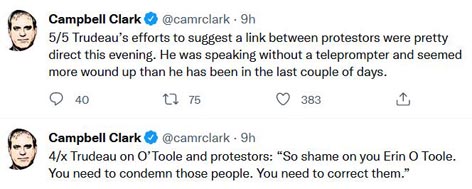

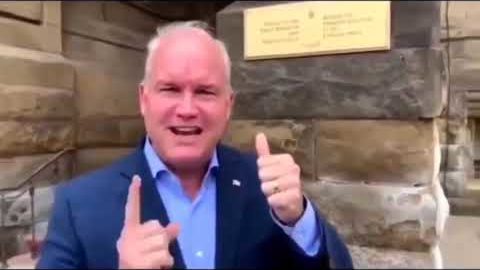






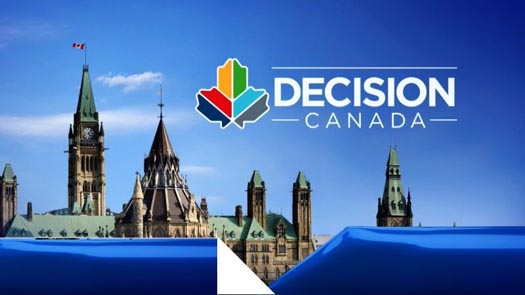








 EKOS Research founder Frank Graves says Erin O’Toole NDP support tone deaf.
EKOS Research founder Frank Graves says Erin O’Toole NDP support tone deaf.
